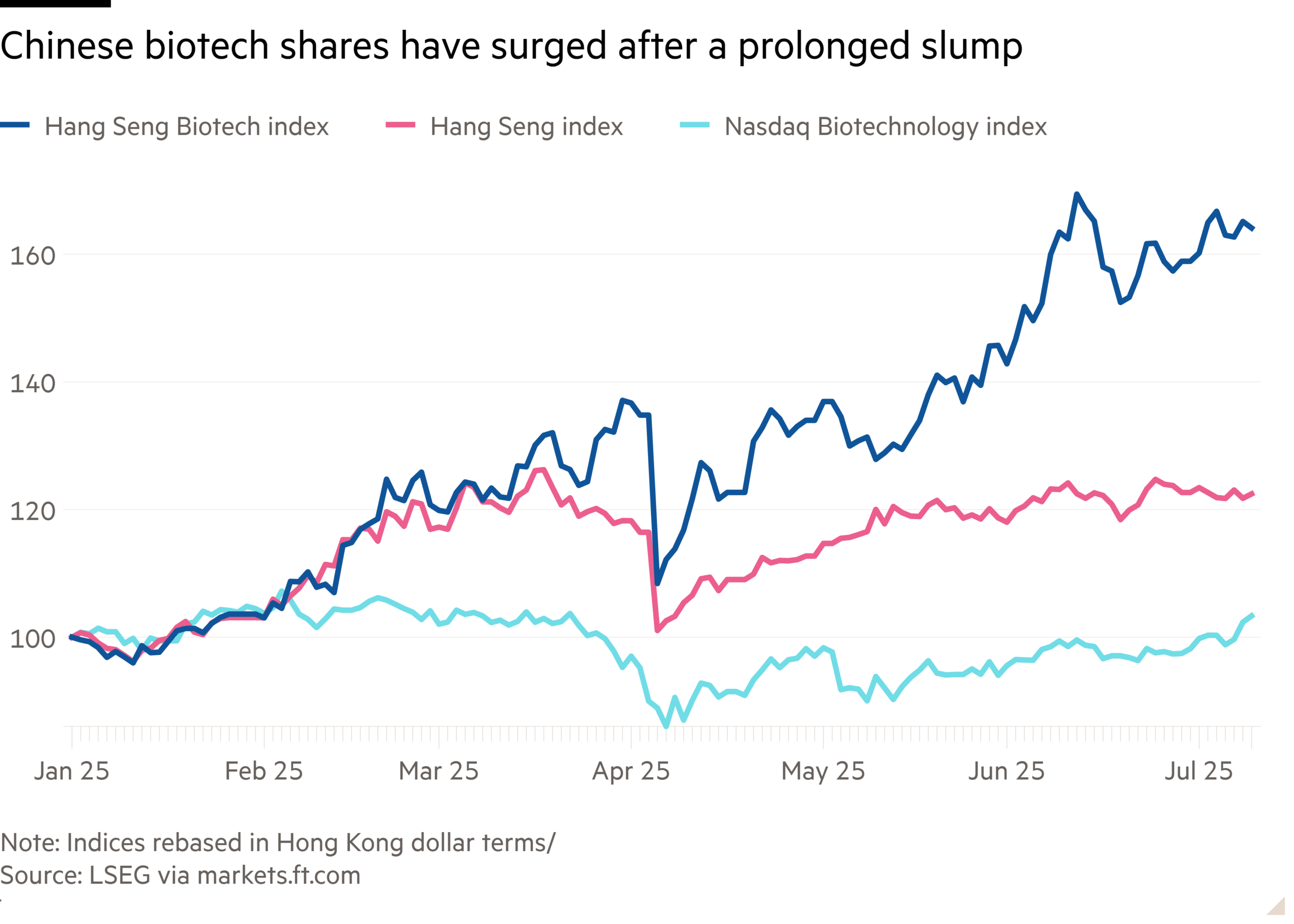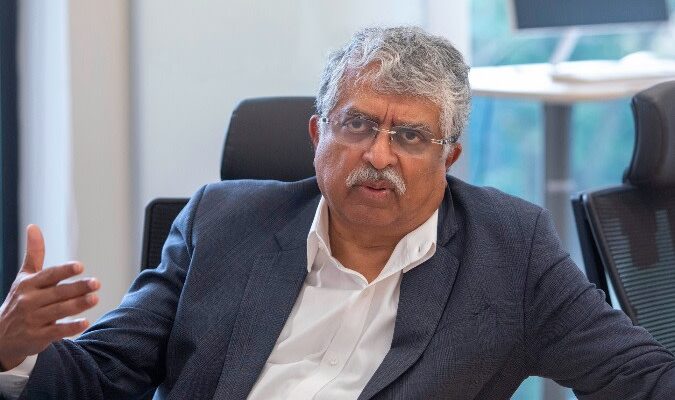Unlock the Editor’s Digest for free
Roula Khalaf, Editor of the FT, selects her favourite stories in this weekly newsletter.
Chinese biotech shares are surging this year on growing optimism over innovative cancer treatments being licensed to western pharmaceutical companies.
The Hang Seng Biotech index, which reflects the performance of the 50 largest such companies listed in Hong Kong, has returned 61.8 per cent so far this year, well ahead of the 20.6 per cent return on the city’s benchmark Hang Seng index.
The rally marks the end of a prolonged bear market for China’s biotech industry. Interest in the sector faded in 2021 as a broader market downturn, US-China tensions and concerns about overvaluation were compounded by an anti-corruption campaign in China’s medical sector and regulatory changes that made drug sales less profitable.
Now, the rapid pace of innovation in Chinese pharmaceuticals and their significantly lower research costs have prompted investors to reconsider the sector.
“There’s huge interest coming back,” said Shannon Cheung, a family office investor and co-founder of Beijing-based Likang Life Sciences, a cancer vaccine biotech. “We had a nuclear winter for Chinese biotech financing, but green shoots are coming back fast.”

Performance has been driven by a resurgence of interest in Chinese biotech companies developing cancer drugs that are competitive, or in some cases superior, to existing western treatments.
There is particular excitement around new variations of PD-1 immunotherapy treatments under development by some Chinese biotechs. New therapies known as PD-1 VEGF have recorded strong clinical results showing they stimulate an enhanced immune response to cancer.
“The reason people are crazy about PD-1 is that it is supposed to treat almost every type of cancer indication,” said Cui Cui, head of Asia healthcare research at Jefferies.
Investors are seeing a trend of Chinese biotechs licensing their treatments to western pharmaceutical companies that are facing a “patent cliff” as their existing intellectual property protections expire. “They need to allocate capital and are looking for more promising drugs in China,” said Emily Dong, head of equity at Conning Asia Pacific, an asset manager.
3SBio, based in the north-eastern Chinese city of Shenyang, signed a deal with Pfizer in May for its PD-1 immunotherapy treatment, which involved an upfront payment of $1.25bn, helping its share price rise 318 per cent this year.
Guangdong-based Akeso, which also makes PD-1 treatments, has proved they can be competitive with Merck’s Keytruda, one of the world’s best-selling drugs, in head-to-head trials. Shares in the company are up 92 per cent this year.
There is also excitement over Chinese versions of glucagon-like peptide-1 (GLP-1) obesity drugs. Late last year, Hansoh Pharma, based in Jiangsu province, granted Merck an exclusive licensing deal for its GLP-1 drug that is worth up to $1.9bn. Shares of Hansoh are up 86 per cent this year.
China is also innovating at substantially lower costs than its western counterparts, as it benefits from lower salaries and manufacturing costs, a deep pool of researchers and cheaper trials. Leading Chinese biotech companies have already reached positive earnings for the year, noted Jialin Zhang, head of China healthcare research at Nomura. Long development times mean such companies often burn cash for years before turning a profit.
“That’s a game-changer,” Zhang said.
However, uncertainty over US-China relations hangs over the sector. The US is by far the largest market for pharmaceutical companies, making up about 50 per cent of revenues for prescription drugs in 2022.
The Trump administration is threatening tariffs on the pharma sector of up to 200 per cent, but investors have become sceptical that such a steep tariff would be introduced.
US biotech companies have begun to lobby against deals being struck by Big Pharma with China’s sector, said Jefferies’ Cui. But she expects the licensing to continue.
“For the US government, the priority is still the big guys,” she said. “As long as you do not hurt the economics of US pharma you will be fine.”
Some Chinese companies have bigger ambitions, according to Conning Asia’s Dong.
“They want to be Pfizer. That’s their ambition. Whether they have the capability? We’ll have to wait and see,” she said.


